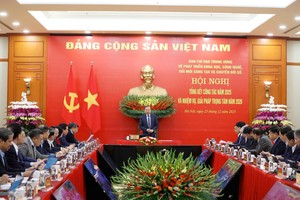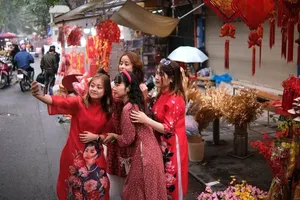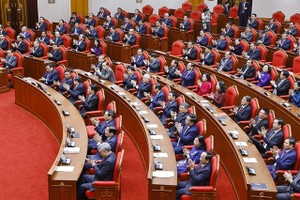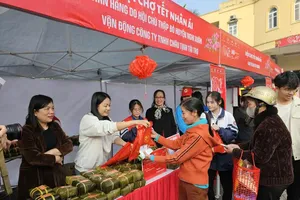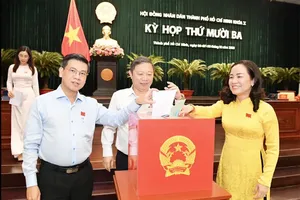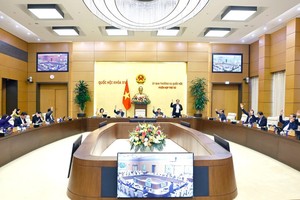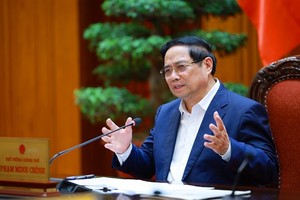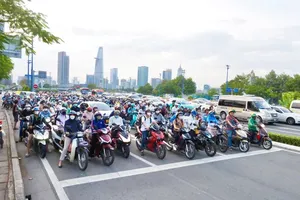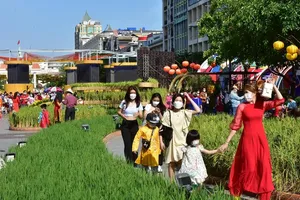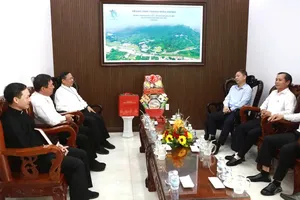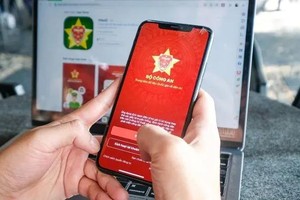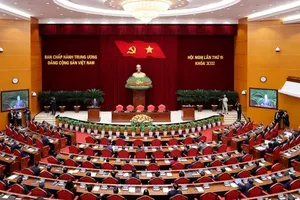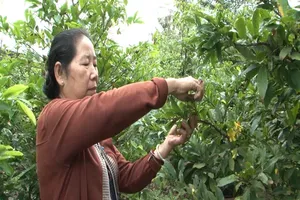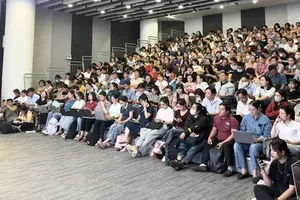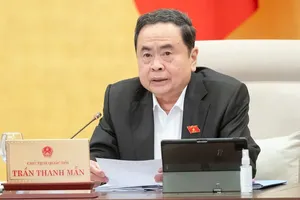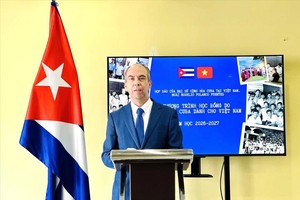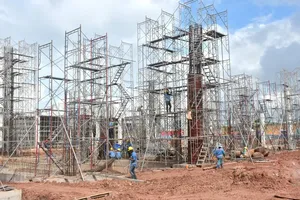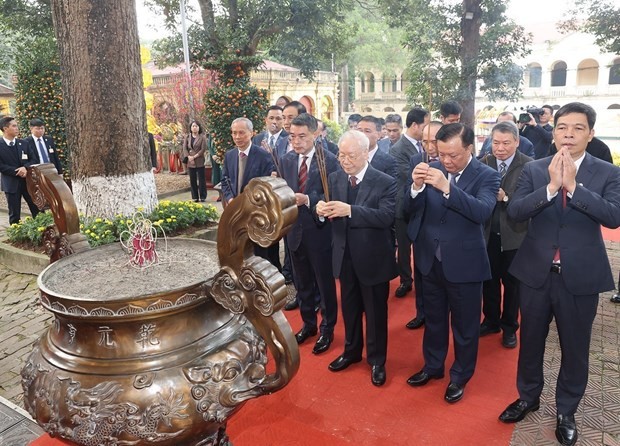
He was accompanied by Politburo member and Secretary of the Hanoi Party Committee Dinh Tien Dung, Secretary of the Party Central Committee and Chief of the Party Central Committee’s Office Le Minh Hung, along with other officials of the Party and Hanoi.
Offering incense to the kings and ancestors on the occasion of the Lunar New Year, the Party leader and officials reported on national development achievements and prayed for peace for the country as well as wealth and happiness for the people.
Talking to the staff of the relic site, General Secretary Trong said the Thang Long Imperial Citadel embodies the quintessence of the national culture and also witnessed successive feudal dynasties constructing and defending the country, which contributed to the time-honoured history and culture of Vietnam.
He asked them to uphold the highest sense of responsibility to help preserve and promote the historical and cultural values of the citadel’s central sector, which was recognised as a world cultural heritage site by UNESCO.
Kinh Thien Palace was built in 1428 under the Le Dynasty (1428 - 1789) on the ground of Can Nguyen Palace of the Ly Dynasty (1009 - 1225) and Thien An Palace of the Ly and Tran (1226 - 1400) dynasties.
During the Nguyen Dynasty (1802 - 1945), a new citadel was built under the reign of King Gia Long, but Kinh Thien Palace still formed an important part there. This palace was renamed Long Thien in 1841.
